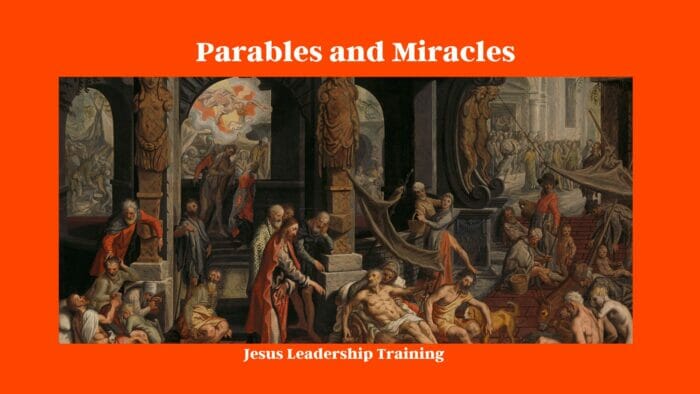Explore the profound significance of parables and miracles in uncovering the mysteries of the Kingdom of God. This enlightening article delves into the timeless teachings of Jesus, revealing the hidden truths behind his captivating stories and awe-inspiring miracles. Discover the power of these narratives in illuminating spiritual lessons and deepening our understanding of divine principles.
Table of Contents
Introduction:
The Parables and Miracles: Unveiling the Kingdom of God are integral aspects of Jesus’ teachings, conveying profound spiritual truths through captivating narratives and extraordinary acts. These powerful tools allow individuals to grasp complex concepts by presenting them in relatable, accessible ways. In this article, we will delve into the significance of parables and miracles, unraveling the hidden meanings behind them and their role in unlocking the mysteries of the Kingdom of God.
Parables and Miracles: Unveiling the Kingdom of God
Parables and miracles serve as windows into the divine realm, offering glimpses of the Kingdom of God on earth. Let’s explore the profound impact of these teachings:

1. The Purpose of Parables
Jesus frequently used parables to teach his disciples and the crowds that followed him. But why did he choose this particular method?
Parables, with their symbolic language and vivid imagery, engage listeners’ hearts and minds, making the teachings more memorable and relatable. These stories provide tangible examples that enable individuals to grasp spiritual truths and apply them to their lives.
2. Unveiling Hidden Truths
One of the remarkable aspects of parables is their ability to reveal deeper spiritual meanings. The surface story often conceals profound truths that require introspection and contemplation to uncover. Through parables, Jesus challenged his listeners to look beyond the literal narrative and discover the underlying message.
3. Seeds of Transformation
Parables plant seeds of transformation within individuals, inviting them to reflect on their beliefs, attitudes, and actions. These stories have the power to awaken dormant spiritual insights and bring about personal growth. By presenting relatable scenarios, parables encourage self-reflection and inspire positive change.
4. Miracles: Signs of the Kingdom
Miracles performed by Jesus demonstrated the power and presence of the Kingdom of God. These extraordinary acts, such as healing the sick, feeding the multitudes, and raising the dead, revealed the divine authority behind Jesus’ teachings. Miracles were not merely displays of supernatural power but served as signs pointing to the reality of God’s Kingdom.

5. Breaking the Bounds of Reality
Miracles defy the natural order, transcending the boundaries of human understanding. They challenge our limited perceptions and expand our belief in what is possible. By witnessing miracles, individuals are confronted with the reality of a higher power at work, fostering faith and opening minds to the mysteries of the Kingdom of God.
6. Faith as a Catalyst
Faith played a crucial role in both parables and miracles. Jesus often emphasized the importance of faith as a catalyst for miracles and a gateway to understanding spiritual truths. Through faith, individuals can perceive the invisible Kingdom of God and experience its transformative power in their lives.
7. The Sower and the Seed
The parable of the Sower and the Seed illustrates the various responses individuals have to the message of the Kingdom of God. This parable highlights the significance of receptive hearts and the need to cultivate an environment that nurtures spiritual growth.
8. The Prodigal Son
The parable of the Prodigal Son portrays the unconditional love and forgiveness of God, even for those who have strayed. It teaches the importance of repentance and emphasizes the joyous celebration that takes place when individuals return to the embrace of their Heavenly Father.

9. The Good Samaritan
The parable of the Good Samaritan challenges individuals to show compassion and love for their neighbors, regardless of social, racial, or cultural differences. It calls for a shift in perspective and reminds us of the profound impact of kindness and selflessness.
10. The Mustard Seed
The parable of the Mustard Seed emphasizes the exponential growth and transformative potential of even the smallest acts of faith. It encourages individuals to have faith in the gradual yet powerful unfolding of God’s Kingdom in their lives and the world.
11. Frequently Asked Questions
Q1: How can we apply the lessons from parables in our daily lives?
Parables serve as practical guides for applying spiritual truths in our daily lives. By reflecting on the lessons conveyed through these stories, we can seek to embody qualities such as compassion, forgiveness, and faith. Applying the teachings of parables can enhance our relationships, foster personal growth, and align our lives with the values of the Kingdom of God.
Q2: What is the significance of miracles in the context of the Kingdom of God?
Miracles serve as tangible manifestations of divine power, affirming the reality of the Kingdom of God. They inspire awe, instill faith, and demonstrate the compassion and love of God. Miracles also offer hope to individuals facing challenges, reminding them that nothing is impossible with God.
Q3: Can parables and miracles still impact our lives today?
Absolutely! The timeless wisdom contained within parables transcends the boundaries of time and culture. Their messages remain relevant, continuing to inspire and transform lives. Likewise, miracles are not confined to the past; they continue to occur, reminding us of the ongoing presence and power of the Kingdom of God.
Q4: How can we deepen our understanding of the Kingdom of God through parables and miracles?
To deepen our understanding of the Kingdom of God, we can study the teachings of Jesus and immerse ourselves in the parables and miracles found in the Gospels. We can meditate on their meanings, seek guidance from trusted spiritual teachers, and cultivate a personal relationship with God through prayer and reflection.
Q5: Are parables and miracles exclusive to Christianity?
While parables and miracles are commonly associated with Christianity, their underlying principles and universal truths can resonate with people of various faiths and belief systems. The transformative power of these teachings transcends religious boundaries, inviting individuals from all walks of life to explore their profound wisdom.
Q6: What is the ultimate message conveyed through parables and miracles?
At their core, parables and miracles unveil the Kingdom of God as a realm of love, compassion, forgiveness, and transformative power. They inspire individuals to seek a deeper connection with the divine, embrace spiritual growth, and embody the values of the Kingdom in their lives.
Conclusion
The Parables and Miracles: Unveiling the Kingdom of God offer invaluable insights into the divine realm and the principles that underpin it. Through parables and miracles, Jesus provided a roadmap for spiritual growth, offering profound teachings in relatable and extraordinary ways. By delving into these narratives and acts, we gain a deeper understanding of the Kingdom of God and discover timeless truths that can guide and transform our lives.




